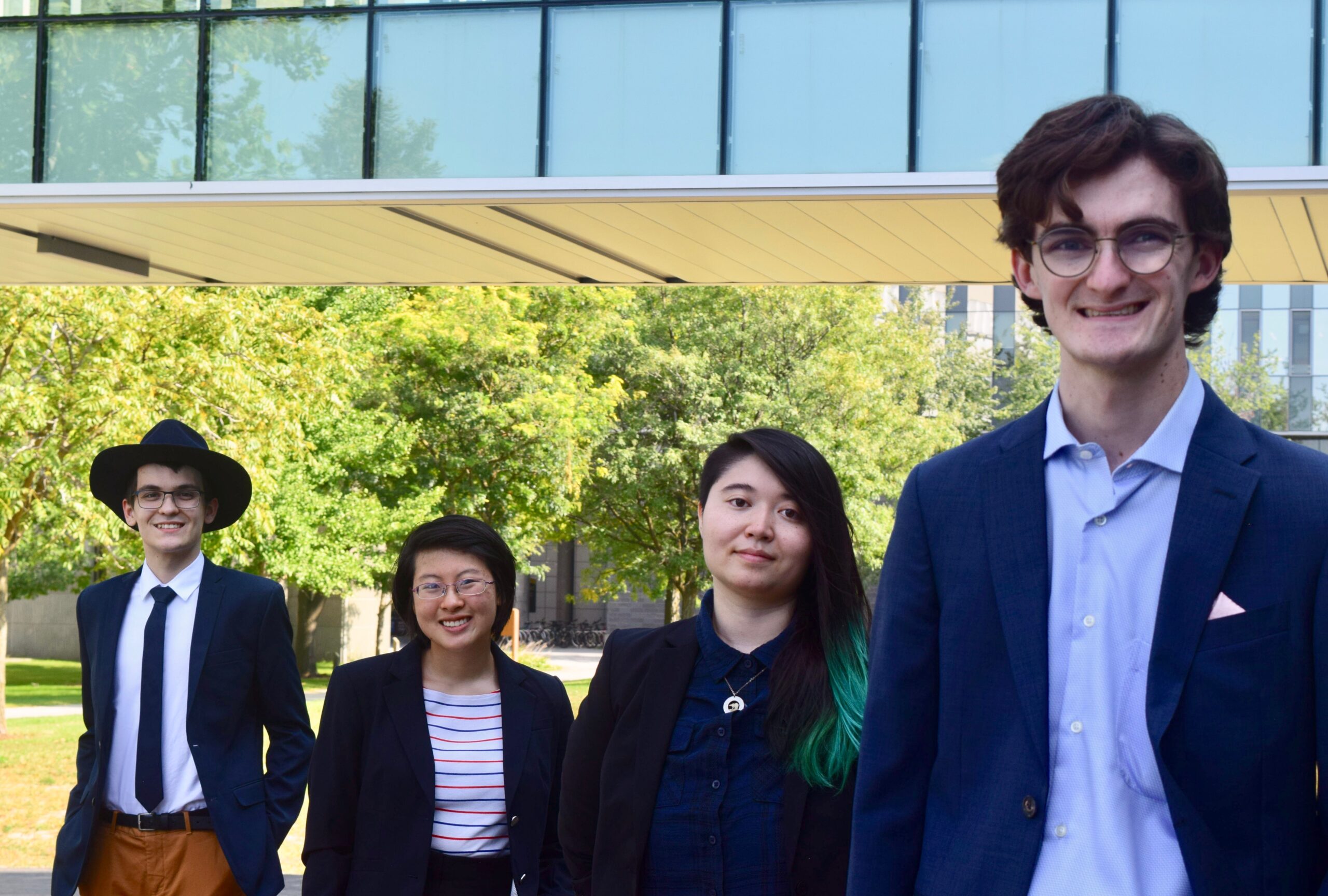At a Special General Meeting on Feb. 1, University of Waterloo students voted to extend WUSA’s governing year until no later than Sept. 1 and to reduce the General Meeting quorum by half, from 200 to 100 members.
Initially, WUSA proposed an extension of the current governing year for up to 12 months after the Annual General Meeting, which occurs in March. However, students at the Feb. 1 Special General Meeting reduced the proposed extension period to the Spring 2022 term only, requiring WUSA to hold an election before September.
The ratification of bylaw amendments to postpone the 2022 General Election, which would otherwise have occurred before the Winter term reading week (Feb. 19), is one step in WUSA’s ongoing governance review process. WUSA representatives and the organization’s legal team are now working to develop bylaws for the new governance system, which students will be able to vote on at the upcoming Annual General Meeting in March.

According to a Feb. 9 Governance Review Update from WUSA president Benjamin Easton, the governance review process began in part in 2020, when WUSA Students’ Council and the Board of Directors approved a 2020-2025 Strategic & Long-Range Plan that “identified as a priority the review of our governance practices to address barriers to democratic participation in the organization.”
Democratic participation in WUSA initiatives has been limited for the past several years. Between 2012 and 2017, the highest voter turnout for any WUSA election was approximately 15 per cent, while the lowest was below 5 per cent. Similarly, many candidates for WUSA positions run unopposed, such as was the case with the current executive team, and, in some cases, there are not enough candidates to fill the available seats. “Our team was acclaimed. We have had vacancies, for example, in the Faculty of Science on Students’ Council all year. So and a lot of that kind of chronic disengagement or lack of buy-in from students has really motivated doing this governance review in the first place,” Easton said.
The ratification of a bylaw amendment to reduce the General Meeting quorum was also introduced to help with low engagement. The Feb. 1 Special General Meeting was the first time since the COVID-19 pandemic began that WUSA reached quorum, though achieving this goal necessitated a proxy voting system and a significant wait — quorum was not reached until one hour into the General Meeting.
When students are engaged, features of WUSA’s structure restrict their ability to enact the changes they desire. In the Feb. 9 Update, Easton wrote, “Over the past several years, we have noticed some governance issues which inhibit students’ effective control over WUSA, including an increasing complexity of process, a lack of clarity of responsibility between Students’ Council and the Board, a ‘scope creep’ of these bodies, and chronic burnout of student executives who are placed in the middle of this system without the support to succeed.”
When the current WUSA representatives assumed their roles in the spring of 2021, they began a more comprehensive assessment of the organization’s structure, practices and policies, which involved consultation from external governance experts. The consultants presented WUSA with a report, recommending, among other things, that Students’ Council and the Board of Directors be combined into a single governing body elected at large by undergraduate students.
The report also recommended that instead of students voting on candidates for specific positions such as President, students would vote only for Board members, who would then elect amongst themselves a President and Vice-President.
In response to the new report, the current WUSA representatives chose to propose the governing year extension to give themselves more time to develop the bylaws for the new governance system. Following the extension approval on Feb. 1, Students’ Council held a first reading for a new set of bylaws on Feb. 6. At this meeting, councilors suggested several modifications to the consultants’ model. Among these suggestions were “guaranteeing faculty representation on the new governing body, ensuring students will directly elect the officers of WUSA (i.e., the president and vice president), and proposing a name for the new body—WUSA Council,” Easton wrote in the Update.
WUSA intends to hold a second reading and approval vote at a Special Meeting of Council in the first week of March. Following this meeting and subsequent approval by the Board of Directors, the organization will present the new bylaws to the Annual General Meeting for ratification.
In addition to the two amendments on the meeting agenda, students in attendance discussed housing issues, which have been exacerbated by the COVID-19 pandemic and the often-changing plans for a return to in-person campus activity.
A WUSA survey from December 2021 found that although at the time, the university planned to reopen campus fully for the Winter 2022 term, 47 per cent of respondents had not yet secured housing for the term. Of those students who had not found suitable housing, 70 per cent indicated that they did not have family or friends with whom they would live and that they would need to find housing elsewhere.
Due to the spike in COVID-19 cases caused by the highly infectious Omicron variant, the Winter 2022 term began online, with a gradual return to campus beginning on Jan. 31 when the provincial lockdown was lifted. As of Feb. 7, many classes are held inperson, while some students have still not secured housing.
In a Dec. 17, 2021 Advocacy Update, WUSA stated they were “advocating for you to the University to ensure a continuous learning experience for students who can’t consistently be on campus, [which would] mean all students can participate in their classes whether you’re on-campus all the time, have to miss a few classes, or are accessing everything remotely.”
As of Feb. 15, the university has not mandated that professors provide permanent remote learning options, such as recorded lectures or class notes.































